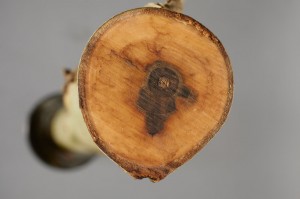Bournemouth Council has launched a team against the deadly ash dieback disease currently threatening the ash tree population throughout the country.
The Forestry Commission has warned the council against the “potential threat of this disease,” according to Gary Josey, Service Director for Parks.
The first cases of the disease were reported in Buckinghamshire in February this year and since then it has spread in variety of locations throughout UK.
It is caused by a fungus called Chalara fraxinea (C. fraxinea) and results in leaf loss and crown dieback in affected trees. It ultimately leads to the death of the trees.
The 80m ash trees in Britain are at risk by this devastating disease, prompting the government to launch a Cabinet Office Briefing Room (COBR), an emergency committee to tackle this problem.
Heeding the commission’s warning, the council has deployed various parks and garden teams, accompanied by volunteers, to check for the signs of the disease in the trees around the region.
The young trees are said to be more prone to an attack by this dangerous fungus and thus the council “will not be planting any further Ash trees,” said Josey.
The number of affected english counties has doubled since the outbreak, according to a report submitted at a summit headed by environment secretary Owen Paterson, Department for Environment, Food and Rural Affairs (DEFRA).

“We are frequently inspecting our Ash trees and thankfully we have no signs of the disease in Bournemouth,” said Josey. The teams have been placed on high alert and asked to be on constant lookout for early symptoms such as leaf curl, dead branches and lesions to the trunk.
The commission on the other hand has designed various tools to help educate frequent wood visitors about the threat.
A smartphone app called Ashtag, that allows people to take photos and inform the authorities about plausible sightings, has been launched.
The council has appealed to people to report any suspicious symptoms immediately.








